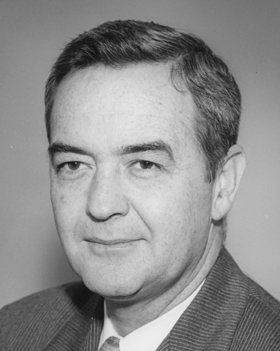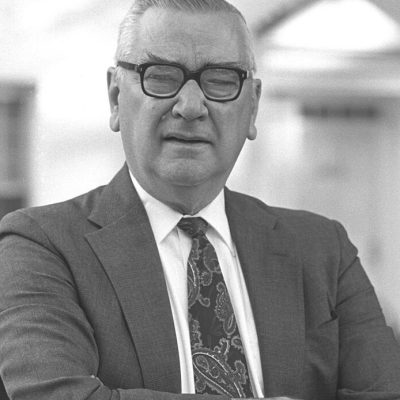In a career dotted with accomplishments, Marcus Hobbs may best be remembered for his contribution to a brochure.
Yes, a brochure.
In the mid-1950s while dean of Duke’s Graduate School of Arts and Sciences, Hobbs was named to a committee tasked with laying the groundwork for what would become Research Triangle Park. His role: Compile a dossier of sorts on the myriad research ventures underway at Triangle universities. He turned this information into brochures that economic development recruiters used as they set out across the nation to lure research-oriented industries to bring their operations to that area.
It worked. Now, more than 60,000 people work at companies in RTP.
Hobbs would subsequently have a close relationship with RTP’s first tenant – Research Triangle Institute – an independent research organization founded jointly by Duke, UNC-Chapel Hill and N.C. State. He was a charter member of its board in 1958 and served until 2003.
Hobbs’ Duke career was unusually lengthy as well. He was a rare person whose entire academic experience occurred on the Durham campus: he enrolled as an undergraduate, completed a master’s and doctorate there, joined the chemistry faculty in 1936 and later served in a series of administrative roles. He was, in order, chairman of the chemistry department, dean of the Graduate School of Arts and Sciences, dean of the university, vice provost and provost.
When he was awarded the University Medal for Distinguished Meritorious Service at a University Founders’ Day ceremony in 1989, Hobbs was cited for having “strongly influenced the crucial middle years of this institution’s development as a university.”
In chemistry, his contributions were weighty enough that an award from the American Chemical Society bears his name. Similarly, the Rotary Club of Durham named an award for Hobbs, an acknowledgement of his years of service to that organization.



